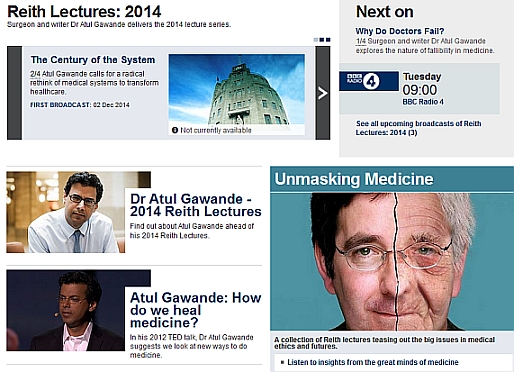Was listening to BBC Radio 4 as I started cooking dinner - and there was a trail for this year's Reith lectures. I only half-heard it, but it sounded very likely that it would be interesting to some people here.
Rather than my trying to summarise something that I didn't hear properly, about something that has not yet been broadcast, seems far better that I simply post a link to the appropriate page of the BBC web site.
Dr Atul Gawande: Why do doctors fail?
A collection of Reith lectures teasing out the big issues in medical ethics and futures.
Perhaps, just maybe, if we understand doctors better, we might be able to help them to help us? Or at least see why they so often seem to fail in delivering what we think they should.
[Sorry - I have no idea what access those outside the UK might,or might not, have to these broadcasts or iPlayer/downloads.]
Rod
